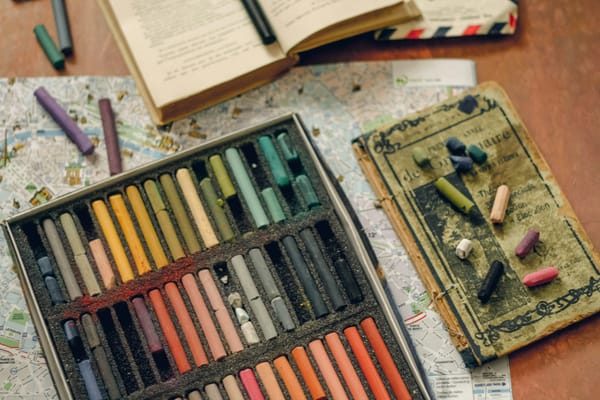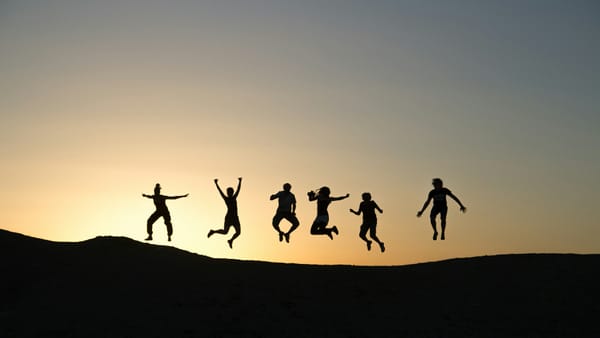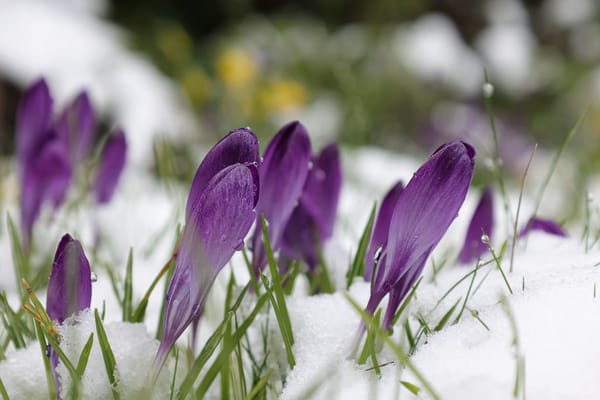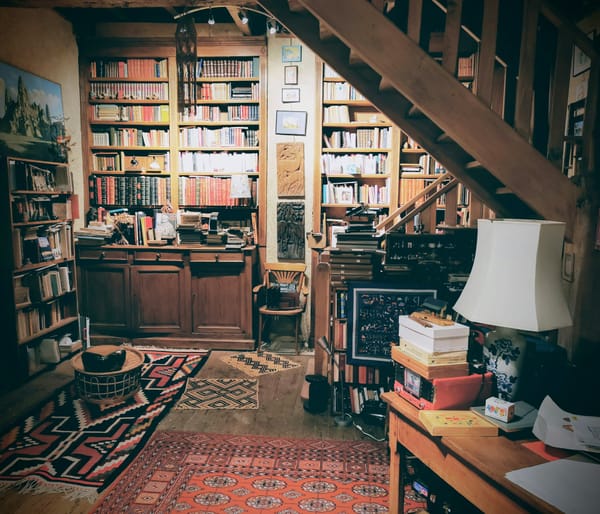story of a vaccination, and of sadness - my everlasting companion and guide
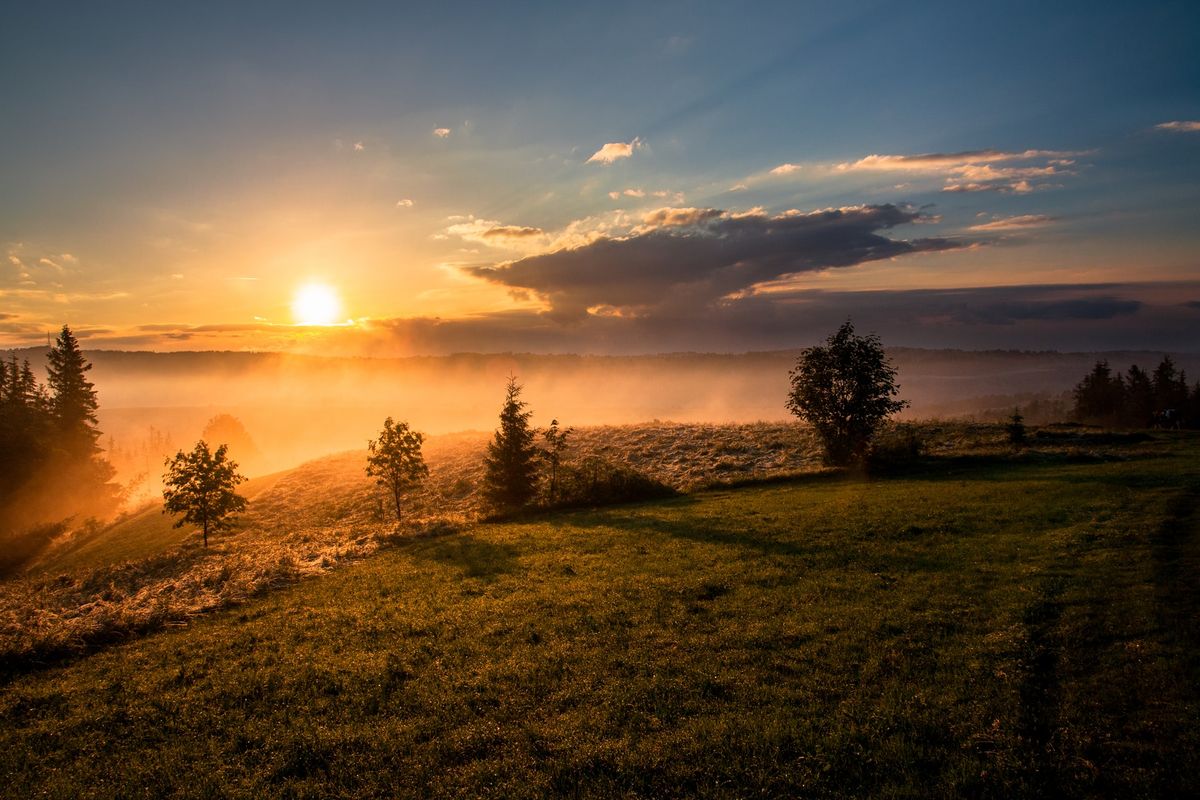
I've just returned home after getting my first shot of the AstraZeneca vaccine, the only vaccine currently available to adults 40 years or older who do not fall in any of the priority or high-risk categories as detailed by the Ontario provincial government.
I suppose I've been truly lucky to not have been categorised as a high-priority or high-risk individual. Which means, ever since the pandemic began, I've been able to stay at home for an entire year and longer, without constantly worrying about coming in prolonged, close contact with another COVID-infected person. In fact, the almost-half an hour that I spent at Shoppers Drug Mart for my vaccination appointment today was the longest I've ever been in an indoor public place ever since the pandemic began.
I first took an appointment for vaccination last week, but then cancelled it after reading reports of the risk of the vaccine-induced blood clot. I went back and forth on the relative merits and demerits of getting a vaccine now or waiting for a few weeks to see if more of the general populace reported any adverse effects from using the AstraZeneca shot, or if any of the other vaccines would become available.
My worry was not about getting a vaccine itself but about specifically getting the AstraZeneca vaccine given the news reports of the blood clot risk associated with it.
If there's anything I've seen consistently in life, it's this: We mistakenly assume that we can live life like a precise mathematical equation.
A + B = C.
But we always forget the margin of error that appears in more complex problems. Because the simple, most overlooked truth is that there are no guarantees in life.
After speaking with family and friends, I decided to not even fall into the tempting trap of 'gaming the system' or 'timing the market' as it were. I took an appointment for this week. In the half-day that I spent between cancelling my first appointment and calling to rebook it, the pharmacy was fully booked with COVID vaccination appointments for five whole days.
Now that the cocktail of chemicals that constitute the AstraZeneca vaccine circulates through my body, I feel sad. A kind of despondency.
Last week, the media was full of reports of 40+ year olds feeling supremely excited about gaining access to a vaccine. Here are people who are aware of the risks of taking the AstraZeneca vaccine and choose to feel enthusiastic about securing some sort of a protection from the deadly virus, and here I was, terrified that I might be that one person in 50,000 or 100,000 to have an adverse reaction to it.
I've come to accept that pessimism is often my instinctive reaction to a dilemma. For years, I got swept up in this emotion before I could identify this as part of my psyche. For years thereafter, as I grew more skilled at identifying this emotion and separating myself from it to take a more objective view, I struggled with self-castigation. Why do I react so negatively to news that so many others receive jubilantly? Why do I get fixated on the one case of blood clot versus looking at the remaining 49,999 or 99,999 individuals who do not experience this?
In these past few weeks, I have changed. I have now come to accept that pessimism is my instinctive reaction and I also don't slip into the self-blame game. It is who I am - for reasons, so many of which were not in my control - and so long as I am conscious of it, willing to honour the feeling as it rises, and know it too will pass, I am comfortable for it to remain a part of me. It doesn't define me. Nothing does, for that matter. No one part of my being is so large and dominant that the rest of me will crumble under its debilitating weight.
While waiting at the pharmacy for the mandated 15 minutes, I shopped and messaged my dear friend, M, who got her first shot yesterday. M and I had been messaging back and forth this past week, sharing our fears and rationales. Her decision to take the vaccine yesterday kept me brave and rooted to my own until my appointment today.
It was only after reaching home that the despondency hit. A vast sadness.
Sadness that it has all come to this for me - taking a decision to inject a cocktail of chemicals into my body in the hope of staving off a potentially deadly infection without knowing which of the two could prove more lethal.
Sadness at all the reports of deaths coming in from India right now. Sadness that it has been eight years since I last visited my folks back there. Wondering what it'd be like whenever I get to go there next - in two or three years from now? - and who'd be left there to visit?
Sadness at the fact that schools are unlikely to reopen in person this academic year. My little one is already tired of Zooming every day, although it has only been a week.
Sadness that my daily word count, on the days I sit down to write, has stagnated at 500-1000 words, and that a good day of writing is often followed by several days of exhaustion and despair and zero output.
Sadness that everyone is doing the best they can to fight this, and it still is not enough.
Now that I have acknowledged the sadness, the acceptance comes.
Acceptance that life was always steeped in uncertainty. When I tried to adopt the view that uncertainty means possibility, I closed my eyes to the view that uncertainty means nothing was ever promised, nothing, except death, was ever guaranteed.
For a long time, I ranted and raved like a toddler about how 'unfair' it all was, until I realised that the concepts of 'fairness' and 'justice' too are manmade criteria imposed upon the world at large, but these ideas have no place in nature.
Is it 'just' that the newborn rabbit is destined to become the fox's next meal? The fox would say 'yes' just as surely as the rabbit would say 'no'.
Is it 'fair' that vast sections of people have to choose between starvation and working in crowded environments in the midst of a pandemic?
Is it 'just' that there are people who've been following all the precautions and staying at home, hoping their isolation would contribute to the end of this mayhem, while so many others are unwilling or unable to exercise such restraint?
Maybe I'm asking the wrong question. Maybe it's not a question of 'justice' or 'fairness' at all. It is a question of merely accepting that for all our frameworks and analysis and equations and explanations, life is unpredictable at best. And it will throw a curveball our way when we least expect it, if only to remind us of this fact.
That is not to say we throw away all plans for a future that we may indeed have the fortune to reach.
But the truth is that any misfortune can happen to anyone, anywhere, and the ones best equipped to deal with it are those who don't feel entitled to a 'good' life just because they abided by all of society's rules - went to the right school or college, had a network of contacts in all the right places, played the right moves, or prayed to the right Gods.
To presume that we can avoid pain and misfortune by following a specific script crafted by those who claim to know better is the folly.
To understand that pain and misfortune cannot be avoided, are not to be run away from, is the teaching in this for me.
When I make no demands of life, but live it with all that it has to offer, I understand its true essence. And this understanding, in itself, is quite liberating.
Image Attribution: Photo by Dawid Zawiła on Unsplash

